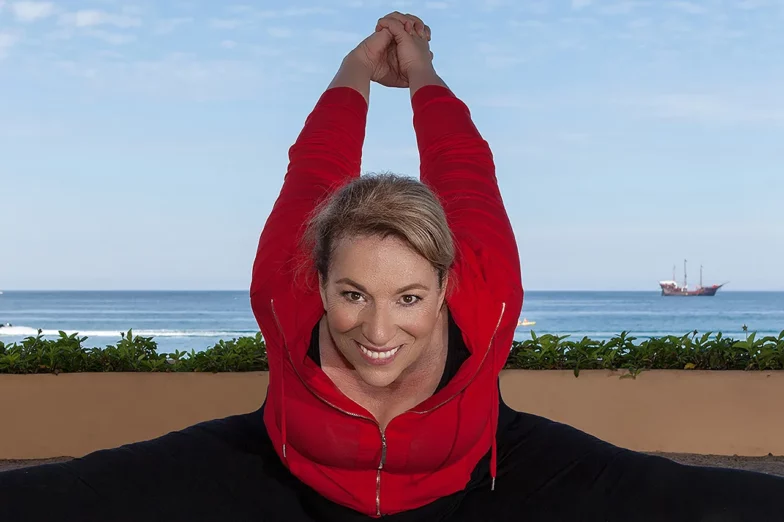Quench the Fires of Inflammation caused by Poor Quality Food
Mental well being requires physical well being. Physical well being requires good quality food. The one nutrition essential factor that contributes to poor mental health and that can be improved by making good food choices is inflammation. What does science tell us about inflammation, mental health and nutrition?
Chronic low-level inflammation is now understood to underline depression. Depression begins with chronic stress. While it is impossible to avoid stress in modern life, we know that Adverse Childhood Events (ACE’s) make us more vulnerable to the development of depression and a host of chronic physical dis-eases. Chronic stress affects the ability of adrenal glands to manage the inflammatory process. Inflammatory cytokines negatively affect the ability to convert tryptophan to serotonin.
This all suggests that working with clients with a history of ACE’s will be enhanced by helping people reduce inflammation by improving food choices to reduce inflammation. How do you know if you have low-level chronic inflammation? Depression and chronic pain may be clinical signs. One inexpensive lab test to assess systemic inflammation is C-Reactive Protein.
An Effective Food to Reduce Inflammation
Cherries are an ideal anti-depressant food that is both delicious and also helps clients to reduce inflammation while improving their sleep. Cherries are rich in anthocynanins that give them a bright red glow and are also known to aid in sleep by elevating melatonin levels (Howatson, Tallent, et al. 2012).
In my clinical textbook written for mental health clinicians, Nutrition Essentials for Mental Health, I developed a recipe called Cherry Chamomile Slumber Smoothie for people to drink before bed to reduce inflammation and aid sleep. I am providing it here and you may share it with your clients (as long as the recipe retains attribution.)

Cherry Chamomile Slumber Smoothie
Make this smoothie an hour or two before you want to go to sleep. Cherries and chamomile tea help induce sleep, the mangoes, seeds, and coconut will support blood sugar throughout the night so you can rest peacefully. Blueberries or frozen bananas make a good substitute for mangos.
Ingredients
- 1 cup almond or coconut milk
- ½ cup strong, cold chamomile tea
Add
- 1 cup frozen (or fresh) cherries
- 1 cup frozen mangos
- 1 tsp. flax seeds (or flax seed oil or lemon-flavored fish oil)
- ½ tsp. chia seeds
- 1 Tbs. coconut cream or coconut oil
- 3 drops liquid stevia
- 1 drop vanilla extract (optional)
Directions
Place all ingredients in the blender and blend until smooth. Keep a quart of strong chamomile tea in the fridge or make “chamomile tea ice cubes” to add to evening smoothies.
More Recipes
I have posted several additional anti-inflammatory and mood boost recipes from both of my books on Mental Health Nutrition on my website blog for download to share with your clients including one called Lemon Chicken Elation. The aroma of lemon lifts depressed mood, the chicken stabilizes blood glucose and sustains energy, and is also antibacterial and antiviral. Since depression can lower immune function this is an important effect to restore well-being. The garlic is rich in sulfur which supports liver detoxification and the minerals from the slow-cooked vegetables are full of potassium which enhances relaxation and supports adrenal function and thereby allowing for adaptation to stress.
In my recent book, Eat Right, Feel Right, (Korn, 2017) I provide 80 tips and recipes to improve Mood, Sleep, Attention and Focus. This resource is designed as a small, recipe-rich book to share with clients or place in the waiting room to use a psychoeducational nutrition to help clients enhance their self care routines and experience the mental and physical health benefits. It is designed to complement my 7-hour Continuing Education seminars on this topic, sponsored by PESI.
What Clients Want
In my clinical and consulting practice I find clients today are interested in natural, simple ways to improve their health and yet they are often confused about what to do. As mental health clinicians, we can help them to navigate these mind/body/nutrition choices with confidence.
I have found that adding nutritional changes into the treatment plan consistently accelerates improvement in the mental well-being of my clients.
I have a few more tips on my podcast: How diet can affect mood
References
Korn, L. (2017) Eat Right, Feel Right, 80 Tips and Recipes to Improve Mood, Sleep, Attention and Focus. PESI/Premiere Publishing, WI
Howatson, G., Bell, P.G., Tallent, J. et al. Eur J Nutr (2012) 51: 909. doi:10.1007/s00394-011-0263-7
- The Soul of Basil - March 12, 2024
- A Comprehensive Guide to Natural Hypothyroidism Treatment - November 17, 2023
- Flexing Your Self-Care Muscle (and Your Client’s Too!) For Success - September 4, 2023

Are You Ready to Advance Your Career?
If you want to advance your career in integrative medicine, explore my courses and certifications.












